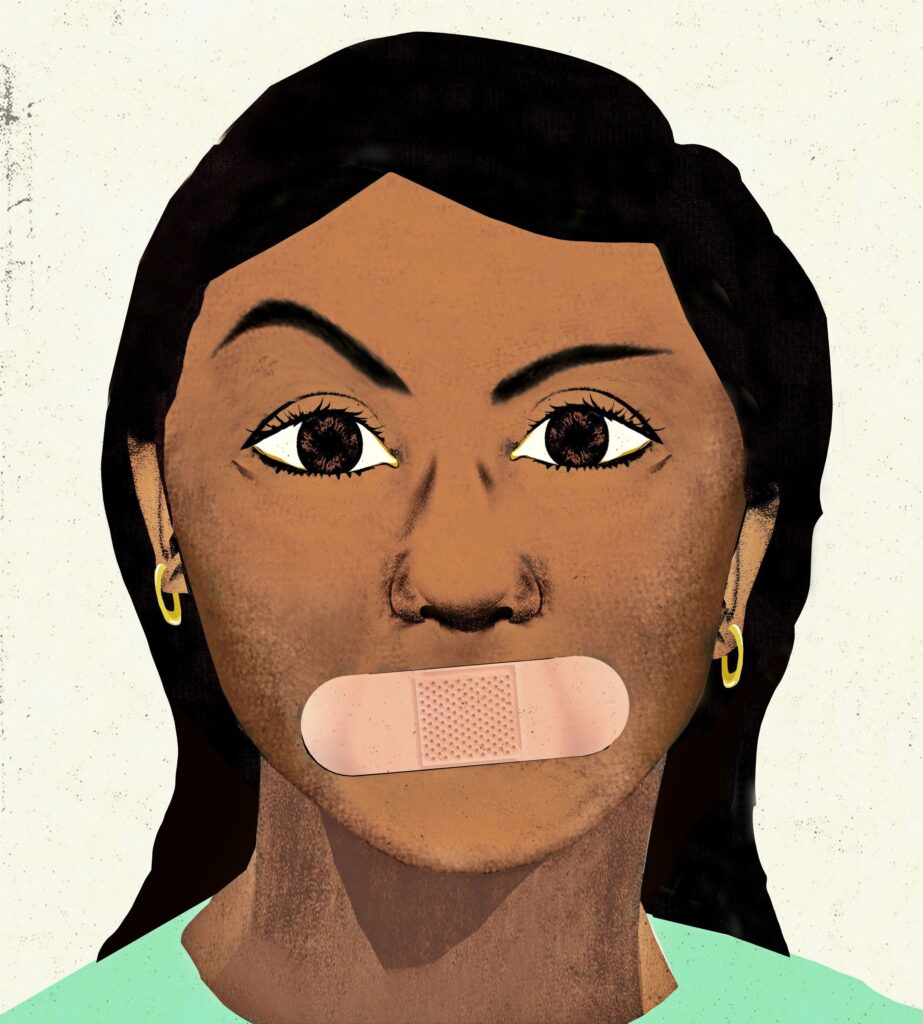Nov 9, 2022
FLAWED -or- FAILING? – Racial Bias in Medical Care
Envision this: You are sitting in the exam room at your doctor’s office waiting for your doctor’s arrival. You have your notebook in hand with questions you plan to ask your doctor. You have a list of concerns you are planning to address with your doctor. You have planned for extra time with your doctor to get these issues addressed, and the Nurse Practitioner comes in and says:
“Sorry Mrs. Mabry, the doctor had Emergency surgery, and won’t be able to see you this visit. I am filling in for her.”
Yes, you could address your questions with the Nurse Practitioner, but your doctor knows your history and you two have established a rapport with each other that she can sense your concern.
When we seek medical care, we all hope that we will be provided the best care possible, regardless of our individual circumstances, regardless of any personal thoughts or feelings, and certainly regardless of our racial makeup. History has shown that not everyone is afforded this type of treatment when it comes to healthcare. Research has proven that over 10 percent of Black adults, and an even higher percentage of Black women and Black adults living in low-income households, reported being unfairly discriminated against or judged by a healthcare professional.
Is this a flawed practice? Or a failing practice?
I’ll share my own personal story. I have changed Internal Medicine doctors more than most people change their bedsheets. I was in the doctor’s office waiting to be seen by my current physician, and I had all of my questions on my notepad. Once in the examining room, the Nurse Assistant proceeded to take my vitals, then I waited for the doctor to come into the room to continue with the regular appointment rituals.
Once the doctor and I began talking, she began to inform me that my blood pressure was elevated and that I would have to be put on blood pressure medication. She proceeded to tell me that for a person my size, I would never come off the medication and that since I don’t exercise, I must be very conscious about taking the medication every day.
Needless to say, I was floored. I was dismayed, disappointed, and downright disgusted with this doctor because she basically told me there was no hope for me.
She assumed I did not exercise. She assumed that I had no interest in my health, so just put her on some medication and she’ll think she’s doing better.
I knew better. I also knew that I did not want her as my doctor anymore.
What that doctor didn’t know, is that I had just joined Black Girls RUN! a little over 6 months prior, and I had developed a new outlook on my health journey.
For millions of Black people and other People of Color in the U.S., racial bias is a very real experience.
Would this doctor have made these statements to me if I were a slender, white woman with the body type that society has painted that “looks” like a runner? Such racial biases have led to serious healthcare disparities that affect everything from incorrect diagnosis to treatment options and more.
Racial bias happens when attitudes and judgments toward people because of their race affect personal thoughts, decisions, and behaviors. Biases show up in many ways, not just in the actual doctor’s office. There are cultural and language barriers, limited or no access to health insurance coverage, and healthcare treatment that add to the biases.
There are many flags to pay attention to when seeking, maintaining, and discussing your healthcare with your physician. One major flag is as follows:
- Black people are more likely to be misdiagnosed or overly diagnosed.
The personal story I gave earlier is an example of being overly diagnosed. The doctor did not offer any alternatives to getting my blood pressure down, nor did she ask me if I did any other activity on my own that would aid in the process.
It is our duty to ensure we, our loved ones, and especially our sistas are being treated fairly in our healthcare system.
Ask the questions. Request the tests. Discuss the test results. Seek second opinions. Take charge of your health even when licensed healthcare professionals are driving your course. You have the right to veer off and pause to not only get a better understanding but to make sure you are being treated by an unbiased professional.
 By: Eden Barbee-Mabry / (@gardenonthegram – IG/ @EdenJBe – Twitter)
By: Eden Barbee-Mabry / (@gardenonthegram – IG/ @EdenJBe – Twitter)
Eden Barbee-Mabry is an Education Support Analyst with the State of Georgia. Eden is a native of Kalamazoo, Michigan, and was led to relocate to Atlanta, Georgia after graduating from Clark Atlanta University in 1988. Eden joined Black Girls Run! in the Spring of 2016 and graduated from the Walk B4 You Run program in June of 2016 and is currently Run Lead for the Fairburn, Georgia group. Eden is a purse lover and strives to inspire every woman because her belief is that although the circumstances may be different, every woman can extract strength from another woman’s story.

